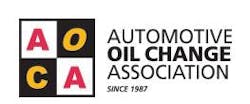The great American fast lube is an automotive marketplace niche champion—an evolutionary powerhouse streamlined to give the most consumers maximum care at a cost they can afford. As a result, routine maintenance protects each driver’s vehicle investment while also helping to keep roadways safe and clean for everyone.
Behind the scenes of this smart, straight-forward industry, however, operators must daily navigate a mine-field of regulation and unfair competition from automakers and their “authorized” dealers. AOCA’s Government Affairs Committee works year-round to disarm those risks via advocacy, research, and development of recommended practices and compliance training programs.
The Topic:
OEMs and authorized dealers market vehicle sales and ownership costs using the highest oil change service intervals for misnamed “normal” driving conditions.
Why AOCA Membership Matters:
AOCA developed the Recommended Practice for Customer Management of Oil Change Intervals, which empowers consumers with the complete picture of OEM-recommended intervals including the most commonly applicable “severe” conditions.
What’s at Stake?
Customer satisfaction and avoiding unfounded fraud actions.
The Topic:
OEMs and authorized dealers violate the Magnuson Moss Warranty Act prohibition against tie-in sales of OEM brand products and services.
Why AOCA Membership Matters:
AOCA successfully files complaints with the Federal Trade Commission, undertakes critical operator and consumer surveys, and advocates for mandatory OEM/dealer MMWA consumer rights notices.
What’s at Stake?
Industry viability
The Topic:
OEMs and authorized dealers conceal and deny engine defects through prohibited tie-in sales of OEM brand products and services.
Why AOCA Membership Matters:
AOCA investigates early warning signs of defects (ex. ballooned oil filters in Hyundai/Kia vehicles with Theta II and Nu engines; mysteriously dropping drain plugs thousands of miles post-service) and files complaints with both the Federal Trade Commission and National Highway Traffic Safety Administration.
What’s at Stake?
$5,000 to $10,000 per engine
The Topic:
OEMs encourage state legislators and regulators to impose regulations to support “normal” service interval fiction.
Why AOCA Membership Matters:
AOCA successfully advocates against state legislation and regulation that would penalize necessary application of “severe” intervals.
What’s at Stake?
Potential $500 per-service fines
The Topic:
OEMs encourage state and federal regulators to officially eliminate aftermarket competition on the basis of new vehicle technology.
Why AOCA Membership Matters:
AOCA successfully advocated for Right to Repair legislation, which must now be expanded to include telematics; see Massachusetts H4122. This issue overlaps with the MMWA prohibition against tie-in sales and service when OEMs/authorized dealers use vehicle display panels to command drivers to use OEM brand service.
What’s at Stake?
The future of new vehicle services
The Topic:
Members of the National Conference on Weights and Measures (NCWM) proposed label and receipt requirements for engine oil and transmission fluid products that would destroy aftermarket competition.
Why AOCA Membership Matters:
AOCA successfully advocated for the correction of those regulations with NCWM and SAE to preserve and protect aftermarket competition, including the long sought-after requirements for (a) official recognition of the suitable-for use transmission fluid standard; and (b) mandatory detailed bulk product receipts from distributors at delivery.
AOCA also developed the only training program for engine oil and transmission fluid labels and receipts applicable to installers, retailers, distributors, and manufacturers.
What’s at Stake?
$100,000 to $300,000 per legal case, as well as fines, penalties and product losses
